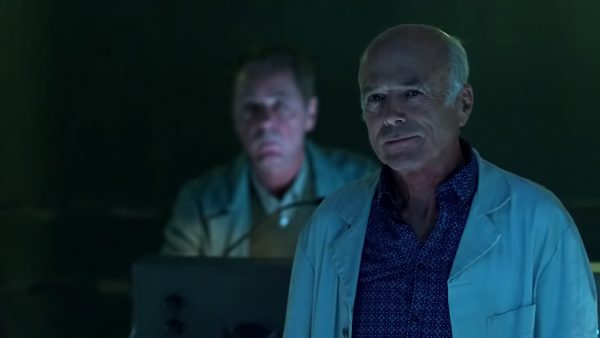Yes, it's a bit different...
The Army of the 12 Monkeys commissioned the project as part of their
larger plan. The machine would ultimately allow the Messengers to
travel back in time and begin paradoxing Primaries. They required all
events to occur exactly as they always did, including having Ramse
travel back in time from 2043. Following the conclusion of this
"cycle", the Messengers finally invaded the temporal facility,
completing the first phase of a plan that was decades in the making.
http://12-monkeys.wikia.com/wiki/Project_Splinter
The TV Series has already given into the idea that there several iterations of the timeline, which may have points of intersection, creating iterations or loops with in some loops, as the series talks about "cycles" and the characters witness a new cycle beginning, but not at the beginning of the series.

In season two for instance, viewers witness a 2044 convergence, which can not happen unless there is more than one 2044 to begin with, but it tries to 'trick' viewers by making it out that the time line was just "altered" by other characters' actions at another point in time and that Jones doesn't remember the relationship she had with Eckland, because she had taken a "time-distortion" drug. However none of the other characters ever claim to remember him either and this is also when the series introduces Ekland to the viewers.--We could suppose that Eckland is from another version of the timeline, knew another Jones, and that the drug is just a side-effect of the time line working the convergence out and is also used as means to [spiritually, emotionally] advance Jones' story.
The TV series tends to talk about things in riddles and the characters often suppose theories about what is or is not happening, and sometimes are proven false, due to other things happening later, kind of having the viewers and characters in tangent through an ongoing process of elimination.
The Film-version ends in a paradox, but without having evidence of other timelines or alterations to the timeline, we have to assume in the film's universe that time is flat circle, instead of having some paradoxes really be multi-timeline networking, as 12 Monkeys the series goes all out on exploring various kinds of paradoxes or 'cause and effect', including some characters potentially time traveling to different times at the same time, without the reality ever breaking completely down, outside of coming close to The Red Forest.
In addition the TV show also has a mythology that revolves around time becoming "conscious" and creating "fate", leading The Witness (or it's followers) to believe the kindest thing to do to help humanity deal with it's pain is to unleash the virus/plague, resulting in a timeless flux (ie: The Red Forest).
However, because the final season has yet to air, we don't know if "fate" can be undone, the virus/plague stopped, and/or if Cole's tv version of the film character will still have to be sacrificed or if the series will end with more of a silver lining, but it is designed a little bit more towards the idea of a non conventional family coming together with a bit of a spiritual undertone with characters having redemption arcs...

